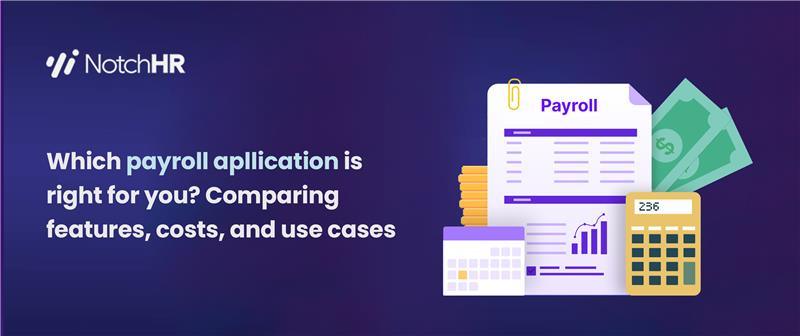When doing payroll management, errors happen, but that doesn’t make them any less frustrating. It’s easy to make a mistake when managing employee compensation. Overpayments and underpayments to staff are not uncommon, and when they do occur, it’s important to handle the situation professionally and efficiently. And it’s not just about avoiding penalties; the company’s employee satisfaction, brand reputation, and bottom line are all at risk.
Learn more about the Finance Act 2020: How It Affects Employment Tax and Payroll
If you’re wondering how to fix a payroll management mistakes of overpayment, don’t worry – you’re not alone. Most companies have payroll accuracy rates of around 80%, and not all managers know how to correct an overpayment.
Keep reading as we break down some of the common causes, dangers of underpayments or overpayments to staff, and how to correct and avoid these errors in the future with as little stress as possible.
What Causes the Payroll Management Errors of Overpayments and Underpayments To Staff
Before we dive into the nitty-gritty of resolving payroll management errors, it’s essential to understand what can cause overpayments or underpayments in the first place. While payroll professionals strive for accuracy, various factors can lead to mistakes. Here are some common causes:
- Human Data Entry Errors:
Human error is one of the most prevalent causes of payroll inaccuracies. A simple typo or misinterpretation of data can result in incorrect paychecks.
- Incorrect Hourly Rates:
If an employee’s hourly rate isn’t accurately reflected in the payroll system, it can lead to underpayment or overpayment.
- Overtime Errors:
Calculating overtime correctly is essential. Mistakes can occur when overtime hours are miscalculated or not appropriately compensated.
- Changes in Employee Status:
Employee promotions, demotions, or changes in employment status (full-time to part-time, for example) can lead to incorrect pay if not updated correctly in the payroll system.
- Benefits and Deductions:
Mishandling benefits, like healthcare or retirement contributions, and deductions such as taxes, can cause discrepancies in paychecks.
- Inaccurate Timekeeping:
If your timekeeping system is unreliable or employees fail to accurately record their working hours, it can result in payroll errors.

The Dangers of Making the Payroll Management Mistake of Overpayments and Underpayments To Staff
So, why should you be concerned about these payroll management mistakes? After all, mistakes happen, right? While that’s true, the consequences of frequent or significant payroll errors can be far-reaching and damaging. Here are some of the dangers associated with underpayments or overpayments to staff:
- Employee Dissatisfaction:
If your employees consistently experience payroll errors, it can erode their trust in the company. Frequent mistakes in their favor might be temporarily appreciated, but they can lead to confusion and uncertainty about their true earnings.
- Legal Consequences:
Payroll errors can lead to legal troubles. If you’re not compliant with labour laws and regulations, you may face fines, penalties, or even lawsuits according to the Nigerian Labour Act.
- Reputation Damage:
Word spreads quickly, and your company’s reputation can suffer if employees or former employees share their negative experiences with inaccurate pay.
- Financial Impact:
Constantly correcting payroll errors can be time-consuming and expensive. Your company may incur costs related to reconciling discrepancies and reissuing paychecks.
- Compliance Risks:
Failing to accurately report income and payroll taxes can put your company at risk of audits and additional penalties from tax authorities.
How to Correct Overpayments and Underpayments To Staff
Now that we understand the causes and dangers, let’s explore how to correct payroll errors. The key is to act swiftly and professionally. Here’s a step-by-step guide:
- Identify the Error:
The first step is to identify the specific error. Was it an overpayment or an underpayment? Review the affected pay period and employee records to pinpoint the issue.
- Communicate with the Employee:
Once you’ve identified the error, it’s crucial to communicate with the affected employee promptly. Be transparent and explain the situation. If it’s an overpayment, reassure the employee that you’ll work together to resolve it without causing undue financial hardship.

- Calculate the Correction:
Determine the amount that needs to be adjusted. If it’s an overpayment, discuss with the employee how they would like to repay the excess amount. For underpayments, calculate the additional amount owed and plan for a resolution.
- Update Payroll Records:
Make the necessary adjustments in your payroll system. Ensure that the corrected amount is accurately reflected in the employee’s next paycheck.
- Legal and Tax Compliance:
Ensure that you comply with all legal and tax requirements in your region. This includes adjusting tax withholdings and reporting the correction to tax authorities.
- Document Everything:
Maintain a thorough record of all communication and actions taken to rectify the error. Documentation is essential for accountability and compliance.
How To Avoid Payroll Errors for Staff in the Future
Correcting payroll management mistakes is very important, but preventing them in the first place should be your ultimate goal.
What’s the best way to avoid payroll errors? Use an automated payroll software.
NotchHR creates a flawless experience for you and your employees, from the moment they clock in until payday. When you use NotchHR’s clocking feature, it turns your employee hours directly into accurate timesheets—no manual calculation is required.

Ready to say goodbye to payroll errors?
Learn how to correct a payroll overpayment, auto-convert timesheets into wages, catch errors, pay your team, and file taxes—all in one place.



